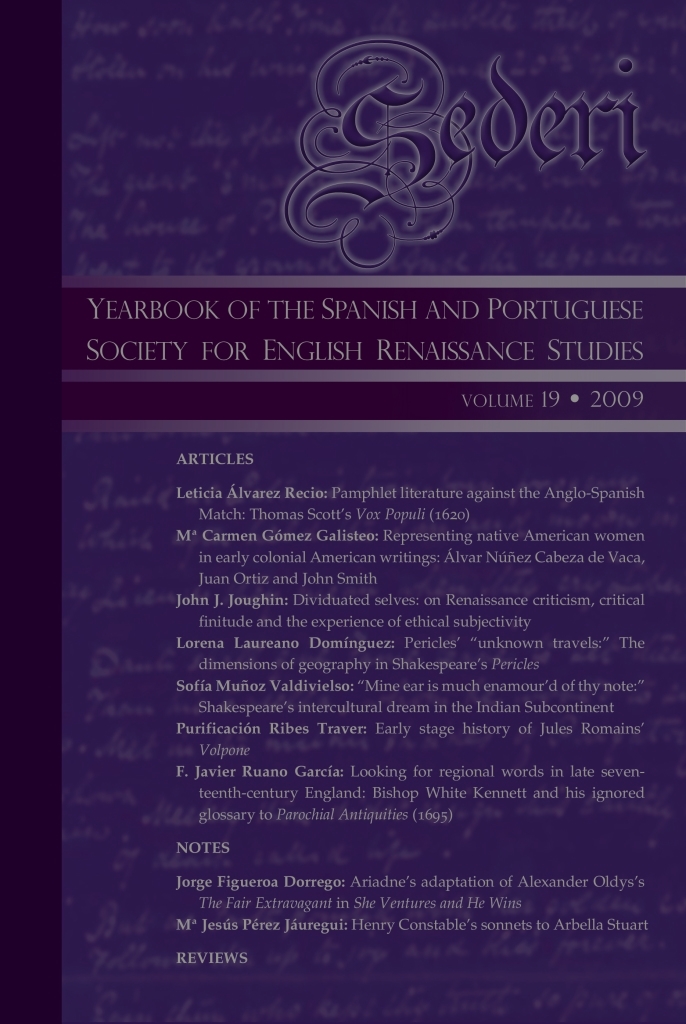Pamphlet literature against the Anglo-Spanish Match: Thomas Scott’s Vox Populi (1620)
Palavras-chave:
Spanish Match, anti-Catholicism, anti-Spanish discourse, pamphlet literature, civic governmentResumo
Abstract
The beginning of negotiations in 1614 for a dynastic marriage between Prince Charles and the Infanta Maria of Spain caused great concern among English people who still held strong anti-Catholic and anti-Spanish prejudices. King James’s decision in 1618 to use the marriage negotiations in order to mediate in the confessional conflict in Europe added to this concern. England was then politically divided between those willing to help James’s son-in-law, Frederick, who had accepted the Bohemian crown following the rebellion of the Protestant estates against the Habsburg King Ferdinand, and those who supported the Stuart monarch’s decision to keep England safe from continental struggles.
Despite the censorship of the state, a group of writers began a campaign against the Spanish Match which had a great influence on public opinion. Among the most prominent of these was Thomas Scott, whose first work, Vox Populi (1620), became one of the most controversial political tracts of the period. This article analyses Scott’s pamphlet and considers how he also made use of the discourse against Catholicism and Spain...
Downloads
Downloads
Publicado
Edição
Secção
Licença
The copyright holder of the published contributions is SEDERI.The hardcopy and an open-access version of the journal will be published simultaneously. The issues will be available online in the SEDERI website (http://www.sederi.org/yearbook/) and other repositories that have signed an agreement with SEDERI.
The authors who publish with this journal agree to the following terms:
a) SEDERI retains copyright of the essay.
b) If the author wishes to republish or rewrite the essay for another journal, or include the essay published in SEDERI in their personal repositories, or in any other way, they should contact the editors to obtain permission to do so. This will entail citing SEDERI as the original source and sending the editors a copy of the new version, or the link to the website, in case of online publishing.
The author(s) hereby warrant(s) that:
a) The essay submitted for publication is an original creation and does not infringe any copyright or property right of another journal, author or publisher.
b) The essay submitted for publication has not been previously published, whole or in part, and is not being considered for publication elsewhere.
c) Written permission has been obtained for any material from other sources included in the essay submitted for publication.




